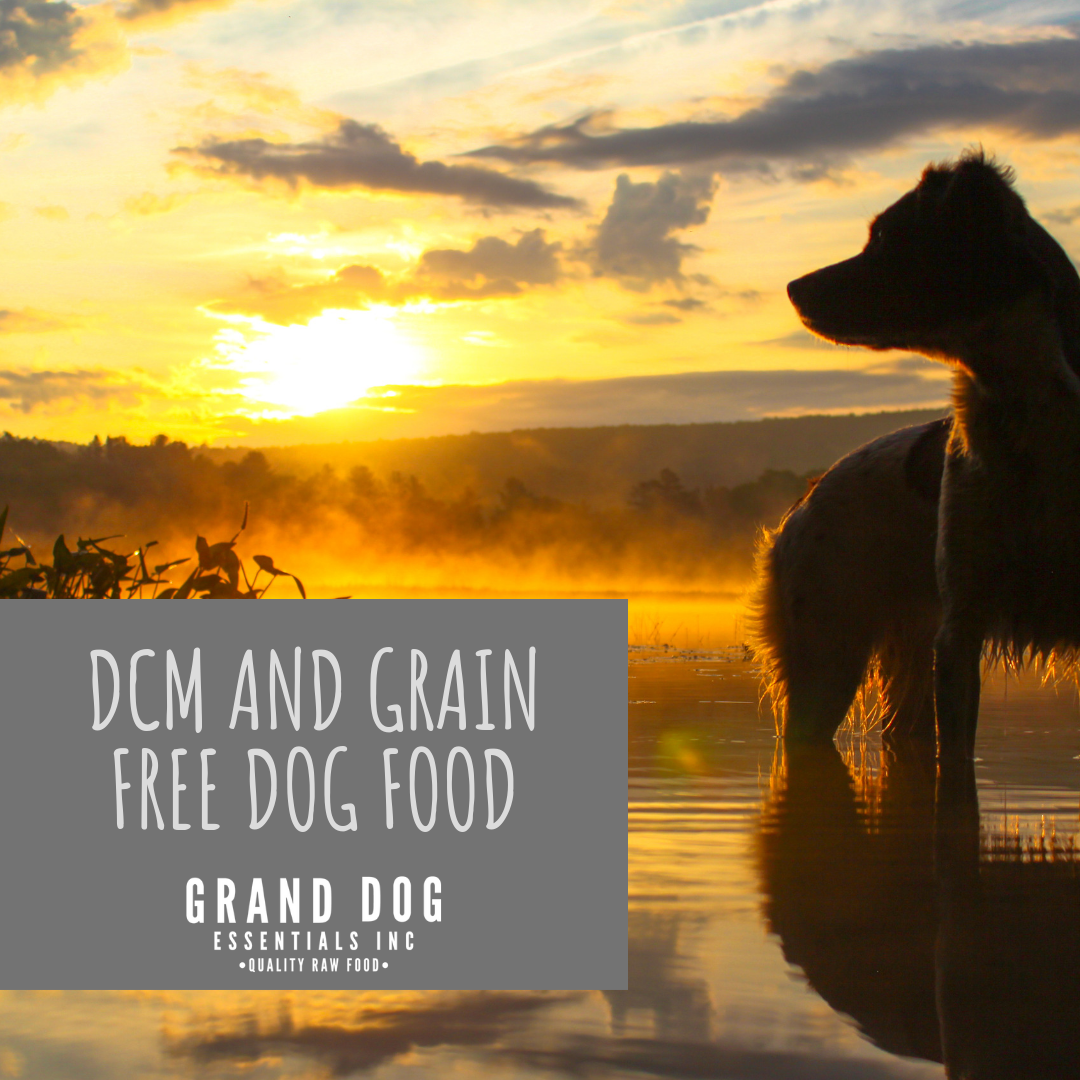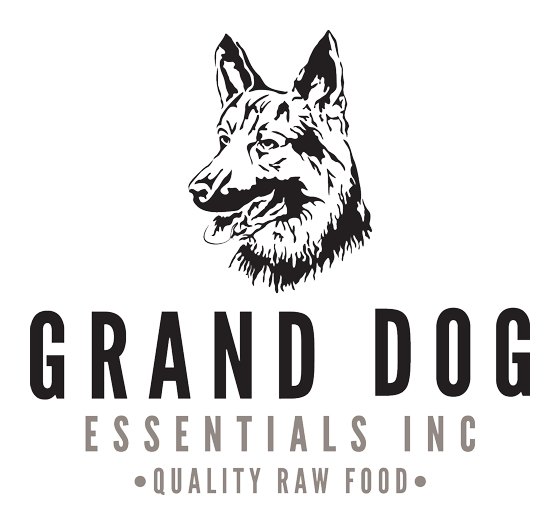What You Need to Know About DCM and Grain Free Dog Food
July 19, 2019 – Amanda Monsma

FDA Investigates the Rise of DCM in Dogs
On July 27, 2018, the FDA released a report stating they had begun investigating Dilated Cardiomyopathy (DCM) in dogs. DCM is more common in large and giant breed dogs like Danes, Boxers, Irish Wolfhounds, Saint Bernards, Newfoundlands, and Doberman Pinschers. Since July 2018, there has been a rise in the number of cases of DCM in the US and those numbers now include breeds such as the Golden and Labrador Retriever, Whippet, Shih Tzu, and Bulldog. You can read the full report here.
What is Dilated Cardiomyopathy?
According to Washington State University, DCM is a disease of the heart causing the chambers to enlarge and weakening the capacity to pump blood. The early stages can be difficult to spot; as the disease progresses some of the signs are:
- Decreased energy for play and exercise
- Abnormal heart sounds (as identified by a Vet)
- Irregular heartbeat (as identified by a Vet)
- Increased breathing rate or panting after exercise
- Coughing
- Sudden weakness.
Grain Free Dog Food
The FDA released an update on their investigation of DCM on June 27, 2019 naming particular brands of dog food that were commonly fed to the dogs affected. The FDA report noted the common thread between all the reported dogs was they were fed a grain free diet high in lentils, peas, potatoes, and legumes.
To be honest, when I first read this, I wondered if there were any implications for our Doggy Moggy Veggie mixes that have lentils, potatoes and legumes in them. After a little digging, I found more information particularly an article from Dogs Naturally Magazine that was helpful.
Grain Free Dog Food and Taurine
In the Dog’s Naturally article, “The Truth About Grain Free Dog Foods and DCM”, they note that DCM can be linked to a deficiency in an amino acid called taurine. Dogs need taurine in their diet for development and function of the heart. It is also important for eye, brain, and immune health. The main source of taurine is animal protein including organs. The sources with the highest levels of taurine are: poultry, fish, brain, heart and liver. Hooved animals like beef and lamb along with eggs and dairy also contain taurine, but in lower levels.
According to Dog’s Naturally, commercial dog food that is grain free tends to put higher priority on vegetable protein (i.e. lentils, peas, potatoes, and legumes) over meat protein. Why? Because it’s cheaper and, in a world where vegetarianism and veganism is becoming more mainstream for humans, pet diets often follow suit.
The Whole Dog Journal provides two more reasons that could be at play. There is evidence certain breeds may be genetically predisposed to having taurine deficiency DCM. These breeds may have a higher need for taurine in their diet or a metabolic condition that affects how taurine is produced in their body. In the FDA report, it notes that research shows Golden Retrievers are one of these breeds. Secondly, there is evidence the size of the dog may be a factor. Larger dogs tend to have a slower metabolic rate affecting taurine production and absorption in the body.
More Research is Needed
Out of the dogs tested in the FDA study, only half were low in taurine, the other half had normal levels. There could be other things at play like how the pulses are grown and the quality used in the food, the gut health of the dogs, or other essential amino acid or nutrient deficiencies. At this point there doesn’t seem to be a simple answer and further research needs to be done.
What does this mean for you and your pup?
If you are feeding raw, we believe you are following a diet well-suited to a dog’s digestive system. However, we are not scientists or vets, so we encourage you to contact your vet if you have any concerns about your dog’s health.
If you are feeding a high beef diet, you might want to consider adding poultry to the rotation to help with taurine levels. Rotating protein is a recommendation we make in general to ensure your pup is getting an array of nutrients (assuming there are no allergies). As fish is another great source of taurine, we recommend adding into your pup's regular feedings 1-3 times a week. Our Doggy Moggy Advanced is a great option as it's made with bison and fish or you can purchase sardines at your grocery store (packed in water with no added oils or seasonings).
We will be sure to follow this story and update our community as things progress. We are on this journey of learning with you, so if you have questions please give us a call or comment below.
Amanda Monsma

2 comments
I’m glad you enjoyed it Jana!
Thank you for this post! I’d recently read an article on DCM and grain free diets but hadn’t done my own research yet. You’ve eased my mind that raw is still a great choice for us.